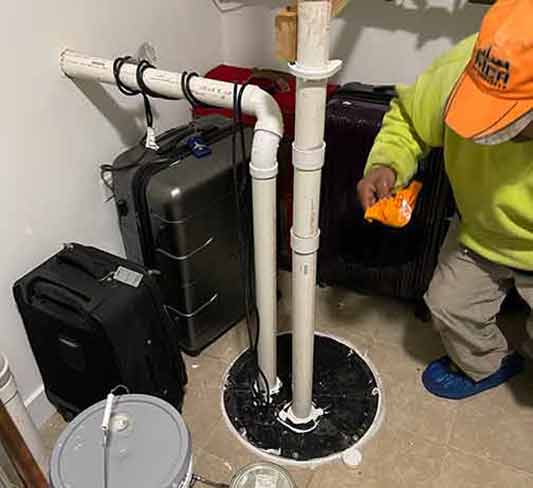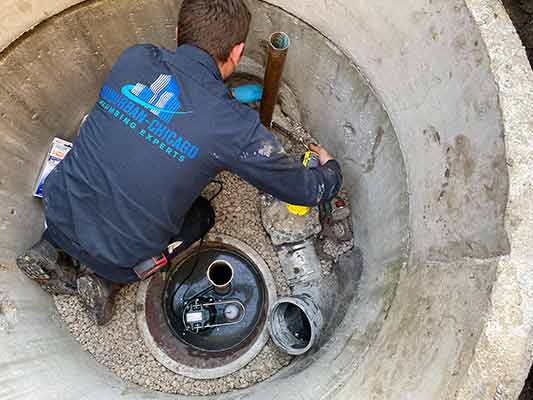Recognizing the Signs for Sewage Ejector Pump Replacement
Welcome to our informative article on recognizing the signs that indicate it’s time for a sewage ejector pump replacement. If you are a homeowner or property manager, understanding the importance of a fully functioning sewage ejector pump is crucial to maintaining a properly functioning sewer system. Ignoring signs of a malfunctioning pump can lead to unpleasant and potentially hazardous situations. In this article, we will discuss various indicators that suggest it may be time to replace your sewage ejector pump. By being aware of these signs, you can prevent costly repairs and ensure the safety and hygiene of your property.
The Role of Sewage Ejector Pump in Your Sewer System
Before diving into the signs of a failing sewage ejector pump, let’s briefly understand its role in your sewer system. A sewage ejector pump is responsible for transferring wastewater from lower levels, such as a basement or ground floor, to your main sewer line. It is particularly useful in situations where gravity alone cannot facilitate the wastewater flow. Sewage ejector pumps are commonly found in properties with bathrooms or utility sinks located below the sewer line. Without a functional pump, wastewater could back up, causing damage and health hazards.
Signs that Indicate a Failing Sewage Ejector Pump
Regular maintenance and timely replacement of sewage ejector pumps are vital to avoid plumbing emergencies and protect your property from potential damages. Here are some common signs that may indicate it’s time for a sewage ejector pump replacement:
- Increased Noise Levels: Pay attention to any unusual noises coming from your ejector pump. Excessive noise, such as grinding or squealing sounds, may indicate a motor or impeller problem. These issues often occur as the pump ages and can hinder its performance.
- Frequent Clogging: If you experience frequent clogging in your plumbing system, it could be a sign of a failing sewage ejector pump. When the pump loses its efficiency, it can cause the accumulation of solids, resulting in clogs and blockages within the system.
- Foul Odors: A functioning sewage ejector pump is essential in preventing unpleasant odors from permeating your property. If you notice persistent foul smells coming from drains or toilets, it may indicate a malfunctioning pump. This issue should be addressed promptly to maintain a healthy living environment.
- Water Backup: One of the most alarming signs of a failing sewage ejector pump is water backup. If wastewater starts to accumulate in your sinks, toilets, or drains, it suggests that the pump is not efficiently pushing the sewage up to the main sewer line. Ignoring this issue can lead to significant water damage and unsanitary conditions.
- Inconsistent Pump Cycling: Pay attention to the pump’s cycling patterns. If you notice irregular cycling, such as frequent or prolonged operation, it may indicate that the pump is struggling to maintain the desired water levels. Inefficient cycling can result in wear and tear, reducing the pump’s lifespan.

Qualified plumbers and pump specialists can accurately diagnose the issue and provide the most suitable solutions.
Why Prompt Replacement is Essential
Although it can be tempting to postpone pump replacement due to associated costs and inconveniences, addressing a failing sewage ejector pump promptly is essential to prevent further complications. Here are some reasons why immediate replacement is crucial:
- Preventing Property Damage: A malfunctioning sewage ejector pump can lead to sewage backup, causing extensive property damage that requires costly repairs. By replacing the pump at the first sign of trouble, you can avoid water damage and associated mold or mildew growth.
- Ensuring Hygiene and Health: Wastewater backups due to a failing sewage ejector pump can create unsanitary conditions, posing serious health risks. Bacteria, viruses, and other pathogens present in sewage can contaminate your living space, leading to illness and diseases. Timely pump replacement is crucial to maintaining a clean and healthy environment.
- Prolonging the Lifespan of Your System: By promptly replacing a failing pump, you can extend the lifespan of your entire sewer system. Neglecting the pump can place additional stress on the plumbing infrastructure, potentially leading to premature wear and tear of pipes, valves, and other components.
Professional Assistance and Maintenance
When facing any signs of a failing sewage ejector pump, it is advisable to seek professional assistance. Qualified plumbers and pump specialists can accurately diagnose the issue and provide the most suitable solutions. They can assist in selecting and installing a new pump, ensuring that it fits your property’s specific requirements.
Regular maintenance is equally important in prolonging the lifespan of your sewage ejector pump. It is recommended to have your pump inspected annually by a professional plumber. They can conduct routine checks, clean the pump, and identify any potential issues before they escalate. By adhering to a maintenance schedule, you can minimize the risk of sudden failures and maximize the efficiency of your pump.
Conclusion
Recognizing the signs of a failing sewage ejector pump is crucial to avoid plumbing emergencies and maintain the functionality of your sewer system. Increased noise levels, frequent clogging, foul odors, water backup, and inconsistent pump cycling are all indicators that it’s time for a replacement. Ignoring these signs can result in property damage, compromised hygiene, and reduced lifespan of your plumbing infrastructure. Seeking immediate professional assistance and adhering to a regular maintenance schedule are essential steps towards ensuring a functioning sewage ejector pump that keeps your property safe and sanitary.
